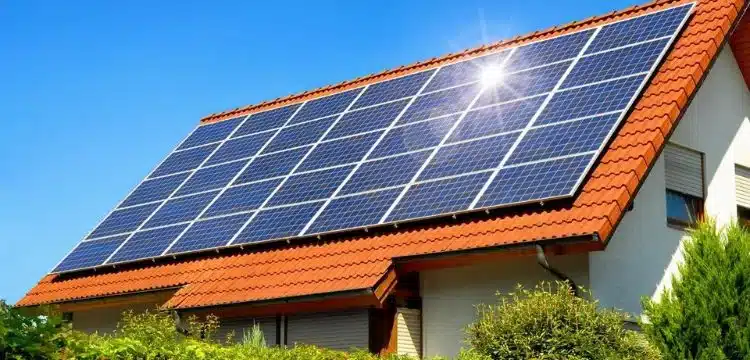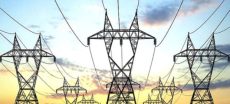[vc_row][vc_column][vc_column_text dp_text_size=”size-4″]With the ever-increasing demand for sustainable and renewable energy sources, solar panels have become a significant investment for many Pakistani households and businesses. The benefits of solar energy are numerous, including reducing electricity bills, decreasing carbon footprint, and providing energy independence. However, with so many options available, selecting the right solar panel can be a daunting task. This comprehensive guide aims to help you navigate through the best solar panels available in Pakistan in 2024, ensuring you make an informed decision tailored to your energy needs.
Why Solar Energy in Pakistan?
Pakistan is blessed with an abundance of sunlight year-round, making it an ideal location for harnessing solar energy. The country experiences about 8-9 hours of sunshine per day, translating to great potential for solar power generation. By tapping into this renewable energy source, Pakistanis can enjoy a constant and reliable power supply, especially in remote areas where grid electricity is either unavailable or unreliable.
Read more: Pakistan Sees Significant Decrease In Solar Panel Prices
Factors to Consider Before Buying Solar Panels
Before diving into the top solar panel options in Pakistan, it’s crucial to understand the factors that influence your choice. These include:
- Efficiency: The efficiency of a solar panel determines how much sunlight it can convert into usable electricity. Higher efficiency means more power generation.
- Durability: Given the varying climate conditions in Pakistan, selecting durable solar panels that can withstand extreme weather is vital.
- Warranty: A good warranty period indicates the manufacturer’s confidence in their product. Look for panels with a warranty of at least 10-25 years.
- Cost: While the initial investment might be high, the long-term savings on electricity bills should be considered. Evaluate the cost-effectiveness of different solar panels.
Top Solar Panel Brands in Pakistan for 2024
1. Trina Solar
Trina Solar is renowned for its high-efficiency panels and robust durability. Their products are an excellent choice for Pakistani consumers looking for reliability and performance.
2. Canadian Solar
With a strong global presence, Canadian Solar offers high-quality panels that provide excellent value for money. Their panels are known for high efficiency and resilience against harsh environmental conditions.
3. JinkoSolar
JinkoSolar is one of the largest solar panel manufacturers globally, offering panels with innovative technology and high energy output. Their products are a popular choice in Pakistan due to their reliability and competitive pricing.
4. JA Solar
JA Solar stands out for its high-powered panels, making it suitable for both residential and commercial use. Their panels are designed to maximize sunlight absorption and convert more sunlight into electricity.
5. ZnShine Solar
ZnShine Solar offers a unique graphene-coating technology that makes their panels self-cleaning, reducing maintenance costs. Their high-quality panels are an excellent choice for the dusty conditions in many parts of Pakistan.
6. LONGi Solar
LONGi Solar is leading the way in mono-crystalline solar panel technology. Their panels are known for their high efficiency, long lifespan, and excellent performance under various environmental conditions, making them a great choice for solar projects in Pakistan.
Installation and Maintenance of Solar Panels in Pakistan
Installation: A Step-by-Step Guide
The installation of solar panels is a critical process that impacts their efficiency, safety, and longevity. Here’s a brief guide to ensure a smooth installation in Pakistan:
- Site Assessment: A professional installer will first assess your property to determine the most suitable location for the solar panels, considering factors like sunlight exposure, shading, and roof condition.
- System Design: Based on the assessment, a system design that matches your energy needs and maximizes efficiency will be proposed. This includes selecting the right size, type of solar panels, and the orientation.
- Permitting: Before installation begins, necessary permits from local authorities or energy suppliers must be obtained. This may involve submitting the system design for approval.
- Installation: Qualified technicians will install the solar panels, inverter, and other components. This involves mounting the panels, connecting them to the inverter, and integrating the system with your property’s electrical system.
- Inspection and Commissioning: After installation, the system must be inspected by relevant authorities to ensure it meets safety and performance standards. Once approved, the system can be commissioned and starts generating electricity.
Maintenance: Ensuring Long-Term Performance
Solar panels require minimal maintenance, but regular checks can optimize their performance and lifespan:
- Cleaning: Solar panels should be cleaned periodically to remove dust, bird droppings, and other debris that can reduce efficiency. In dusty areas of Pakistan, more frequent cleaning may be necessary.
- Inspections: Annual inspections by a professional can identify and fix issues like loose connections, damaged panels, or shading that may have developed over time.
- Monitoring: Many solar systems come with monitoring software that allows you to track performance. Regular monitoring can help detect any drops in efficiency that may indicate a problem.
- Warranty and Repairs: Familiarize yourself with the warranty terms of your solar panels. If a panel underperforms or fails, warranty coverage can provide repairs or replacements at no additional cost.
By following these installation and maintenance guidelines, you can ensure your solar panel system operates at peak efficiency for many years, contributing to both your financial savings and the sustainability goals of Pakistan.
Technological Advancements in Solar Panels
The solar energy sector is witnessing rapid technological advancements that promise higher efficiency and more robust performance. Bifacial solar panels, which capture sunlight from both sides, and flexible solar panels designed for unconventional installations, are becoming increasingly popular. Additionally, innovations in photovoltaic (PV) cell technology, such as PERC (Passivated Emitter and Rear Cell) and half-cut cells, are improving the efficiency and durability of solar panels. Staying informed about these advancements can help you choose a product that will offer the best performance over its lifespan.
Governmental Incentives and Policies
The Pakistani government is actively promoting solar energy through various incentives and policies to encourage the adoption of renewable energy sources. These include tax breaks, subsidies on solar panel purchases, and net metering policies that allow solar energy users to sell excess electricity back to the grid. Familiarizing yourself with these incentives can significantly reduce the initial cost of solar panel installation and increase the financial viability of your investment.
Practical Tips for Optimizing Solar Panel Usage
Maximizing the benefits of your solar panel installation involves more than just choosing the right product. Here are some practical tips to ensure you get the most out of your solar panels:
- Proper Installation: Ensure your solar panels are installed at the optimal angle and direction to maximize sunlight exposure throughout the year.
- Regular Maintenance: Keep your panels clean and free from obstructions to prevent efficiency losses. Consider automated cleaning systems if you live in a dusty area.
- Energy Storage Solutions: Investing in a solar battery storage system can help you store excess energy generated during the day for use during nighttime or cloudy days, ensuring a constant energy supply.
- Monitor Your System: Use a solar monitoring system to track your energy production and consumption patterns. This can help you identify areas for improvement and ensure your system is functioning correctly.
The Future of Solar Energy in Pakistan
The future of solar energy in Pakistan looks promising. With the government’s support and the declining cost of solar technology, more individuals and businesses are expected to adopt solar energy. This shift not only contributes to a greener environment but also helps reduce the country’s dependence on fossil fuels and mitigate the challenges of energy security.
Making an Informed Decision
Choosing the best solar panels in Pakistan requires a comprehensive approach that considers technological advancements, government policies, and practical usage tips. By staying informed and considering these factors, you can select a solar panel system that offers high efficiency, durability, and the best return on investment, paving the way for a sustainable and energy-independent future.
Conclusion
Investing in solar panels is a significant step towards sustainable living in Pakistan. By considering the factors mentioned and exploring the top brands available, you can make an informed decision that meets your energy needs and budget. Remember, the best solar panel is one that balances efficiency, durability, and cost to provide the maximum return on investment.
Frequently Asked Questions about Solar Panels in Pakistan
1. What is the average cost of installing solar panels in Pakistan?
The cost of installing solar panels in Pakistan can vary widely depending on the system’s size, the quality of the panels, and the complexity of the installation. On average, the cost can range from PKR 100,000 for a small residential system to over PKR 1,000,000 for a larger, more efficient setup.
2. How much electricity can I generate with solar panels in my home?
The amount of electricity generated by solar panels depends on several factors, including the size of the system, the efficiency of the panels, and the amount of sunlight your location receives. Typically, a 1 kW solar panel system can generate approximately 4 to 5 kWh of electricity per day in Pakistan.
3. Can solar panels work during cloudy or rainy days?
Yes, solar panels can still generate electricity on cloudy or rainy days, but their efficiency will be lower compared to sunny days. Modern solar panels are designed to capture different spectrums of light, allowing them to generate power even under less-than-ideal weather conditions.
4. Do I need a battery storage system for my solar panels?
While not strictly necessary, having a battery storage system can enhance the efficiency of your solar panel system by storing excess electricity generated during the day for use at night or during power outages. This can be particularly useful in areas with frequent electricity shortages.
5. How long do solar panels last?
Solar panels are designed to be durable and long-lasting. Most solar panels come with a warranty of 25 to 30 years, during which they can maintain a significant percentage of their efficiency. With proper maintenance, solar panels can continue to generate electricity for 30 years or more.
6. What maintenance do solar panels require?
Solar panels require minimal maintenance. Regular cleaning to remove dust, leaves, and other debris is usually sufficient to keep them operating efficiently. It’s also a good idea to have a professional inspect your system annually to ensure everything is in good working order.
7. Are there any government incentives for installing solar panels in Pakistan?
The Pakistani government offers various incentives for solar panel installations, including tax exemptions, subsidies, and net metering schemes that allow you to sell excess electricity back to the grid. These incentives can significantly reduce the overall cost of a solar panel system.
8. Can I install solar panels myself?
While it is possible to install solar panels yourself, it is generally recommended to have them installed by a professional. Proper installation is crucial for maximizing the efficiency and lifespan of your solar panels, and professionals have the necessary tools and expertise to ensure the job is done right.
9. How do I choose the right size solar panel system for my needs?
The size of the solar panel system you need depends on your electricity consumption, the available installation space, and your budget. A professional installer can help you calculate your energy needs and recommend a system size that will meet those needs efficiently.
10. What happens to excess electricity generated by my solar panels?
If your solar panel system is connected to the grid through a net metering arrangement, excess electricity generated can be fed back into the grid, and you will receive credits on your electricity bill. If you have a battery storage system, the excess electricity can be stored for later use.[/vc_column_text][/vc_column][/vc_row]











